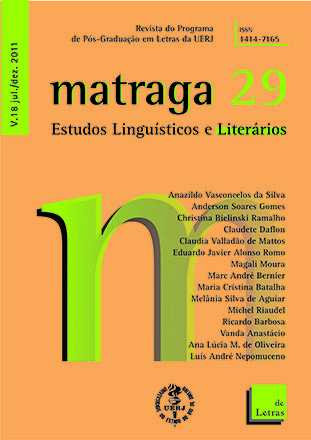Women, society and enlightenment: the emergence of a protofeminist phylosophy in Britain in the 18th century
Keywords:
philosophy, enlightenment, protofeminism.Abstract
In the 18th century, thinkers from diverse areas of knowledge gave birth to a new epistemological perspective to the Western world. In philosophy, economy and politics, among other fields, groundbreaking ideas disrupted the paradigms of European thought. Those revolutionary concepts became historically known under the term Enlightenment. It is in that new intellectual scenario that a new group of authors emerges in Britain, questioning the position of social inferiority in which women are placed. William Alexander, Mary Astell, Catharine Macaulay and Mary Wollstonecraft are some of the thinkers who write works with a protofeminist framework, launching the foundations for a philosophy of emancipation and equal rights for 18th century women. From the writings of philosophers such as David Hume, John Locke and Jean-Jacques Rousseau (and a critical approach to them), those voices that claim for more equality in the treatment of female characters articulate a new positioning of women on historical, social and educational levels.
Downloads
Downloads
Published
How to Cite
Issue
Section
License
Authorization
Matraga – Scientific Journal of the Post-graduate Program in Arts and Humanities of UERJ is authorized to publish the article submitted here, if it is accepted for online publication. It is attested that the contribution is original, that it is not being submitted to another publisher for publication, and that this statement is the expression of truth.
The works published in Matraga's virtual space – Scientific Journal of the Post-graduate Program in Arts and Humanities of UERJ will be automatically transferred, and your copyright is reserved to Matraga. Its reproduction, in whole or in part, is conditional on the citation of the authors and the data of the publication.

Matraga uses license Creative Commons - Attribution-Non-Commercial 4.0 International.





